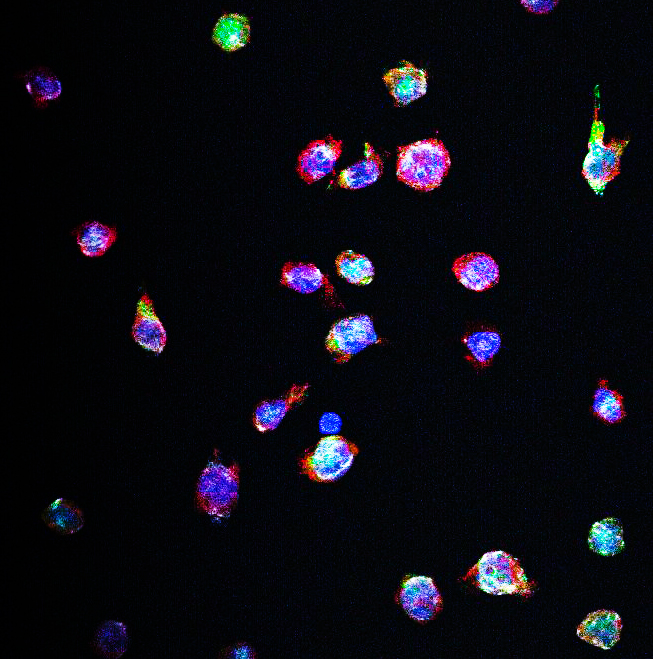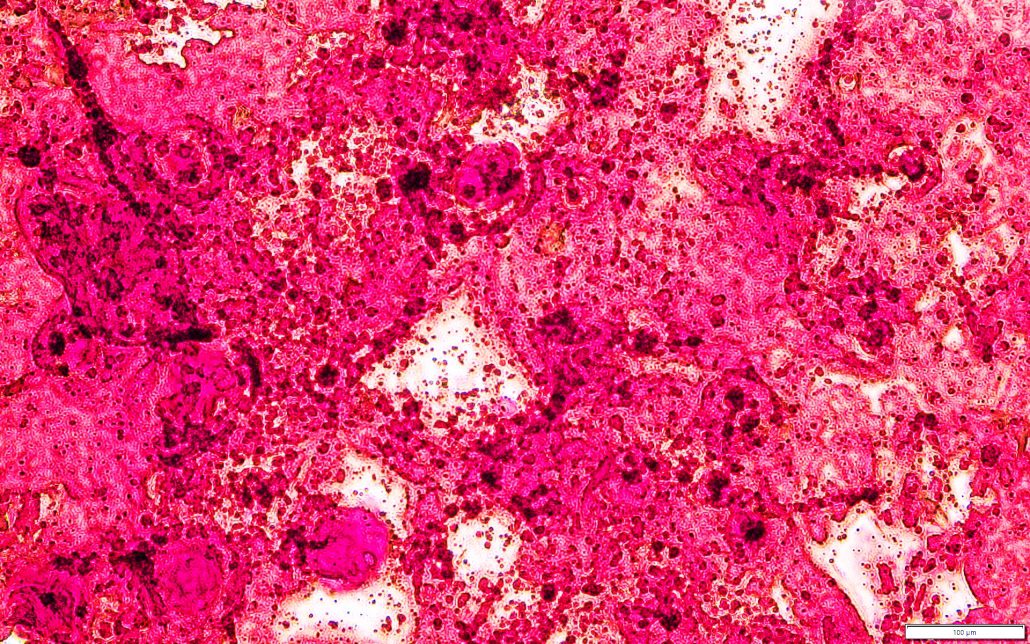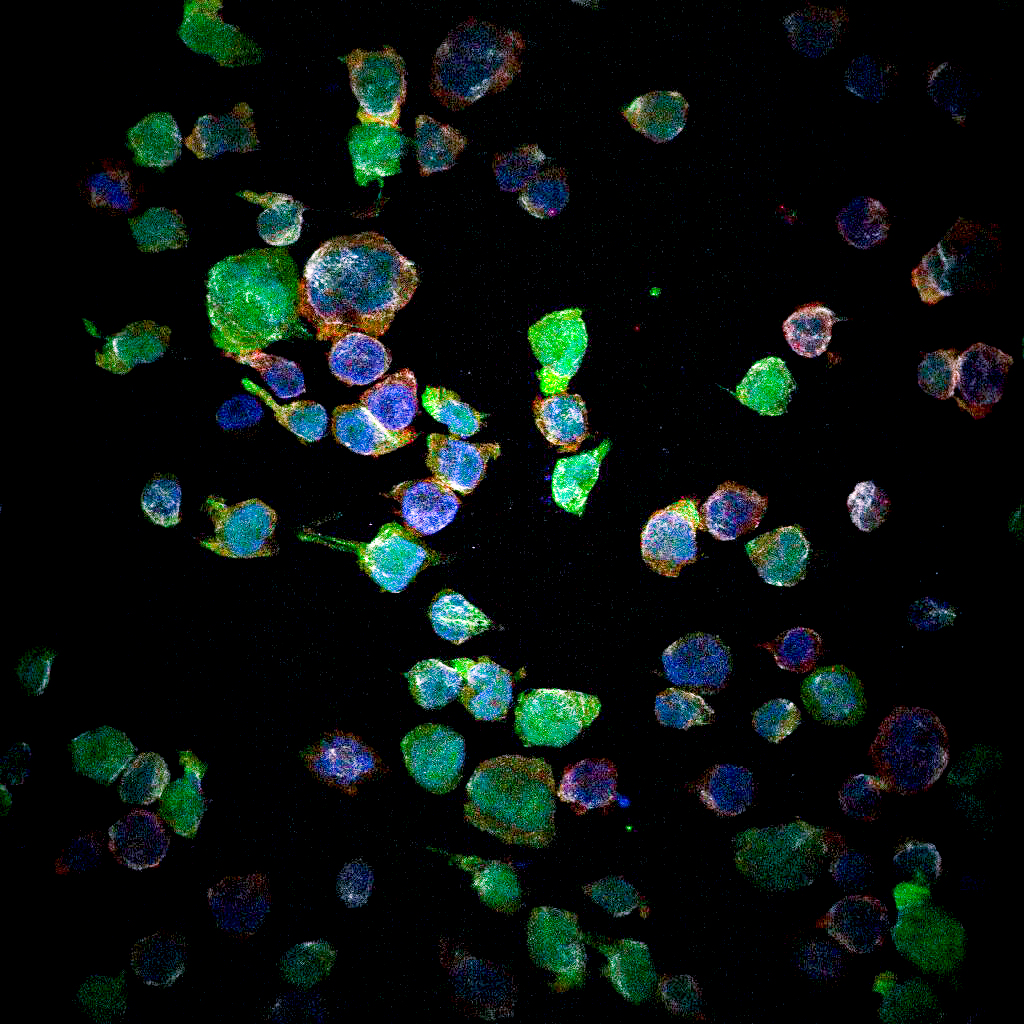
Developing new genetic models of myeloid disease progression
Myelodysplastic Syndromes (MDS) are a group of pre-leukemic disorders that arise from mutations in the hematopoietic stem cells. MDS is the most commonly diagnosed myeloid neoplasm in the United States and is associated with a 3-year survival rate of 35-45%. This significantly high mortality is in part due to a high risk of transformation to acute myelogenous leukemia (AML). There is thus a significant need to develop tractable genetic murine models of MDS initiation and progression to AML. Since MDS can present with several different genetic mutations, including those in metabolic regulators such as IDH2, and splicing factors such as SF3B1 and SRSF2, we are currently working to determine genetic combinations that can effectively model disease progression from MDS to AML. The goal of this work is to identify genetic models that faithfully mimic changes in the bone marrow microenvironment associated with human MDS initiation and progression. These studies will allow us to establish the role of the altered niche on disease progression.

Jeevisha Bajaj, PhD
Assistant Professor
Department of Biomedical Genetics
Wilmot Cancer Institute
University of Rochester Medical Center
585.276.7140
Jeevisha_Bajaj@urmc.rochester.edu
Affiliations
Department of Biomedical Genetics
Genetics, Development, and Stem Cells Ph.D. Program
Wilmot Cancer Institute
University of Rochester Medical Center




